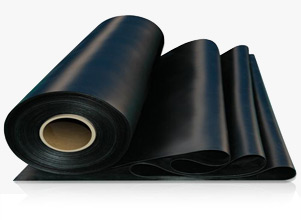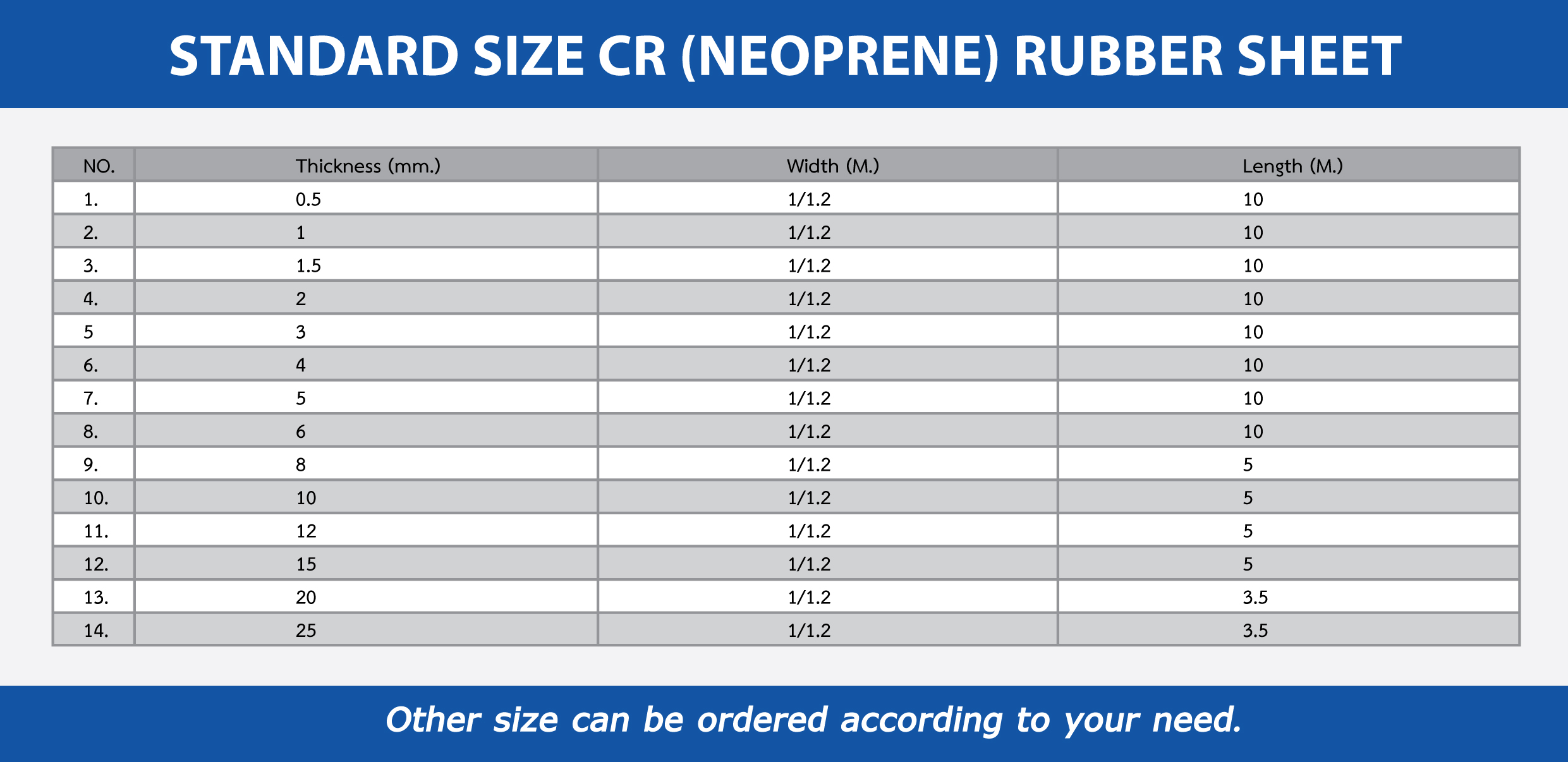The combination of wide temperature range 40 c to 110 c and moderate cost accounts for its desirability in many seal applications.
Neoprene rubber sheet thermal conductivity.
Gas cells and the thermal conductivity of neoprene rubber.
Standard steel sheets steel sheets tantalum foil sheets tantalum sheets temperature indicating sheets textured aluminum sheets thermal insulation sheets thermal sheets thermoplastic sheets traction sheets vegetable fiber gasket sheets vhmw polyethylene sheets vibration damping sheets.
The rubber component of the foam is typically neoprene rubber or polychloroprene thermal conductivity k r 0 100 0 192 w m 1 k 1 and the gas component is nitrogen or air k g 0 026 w m 1 k 1.
The thermal conductivity of neoprene rubber is shown in the literature to range from 0 100 to 0 192 w m 1 k 1 1 5.
Neoprene rubber sheet gaskets neoprene rubber sheet stock.
Neoprene exhibits good chemical stability and maintains flexibility over a wide temperature range.
Fair resistance against mineral oils aliphatic hydrocarbons and steam.
However it should be noted that an increase in temperature might result in a decrease in thickness influencing not the thermal conductivity but certainly the thermal resistance.
Style sce41b closed cell sponge neoprene epdm sbr blend combines the best qualities of all three rubber elastomers which creates an excellent gasket material that can be used in many indoor and outdoor gasketing applications that require a temperature range of 40 f to 200 f.
What is neoprene rubber.
Polychloroprene is primarily composed of carbon hydrogen and chlorine polymers which are cross linked to give neoprene certain desirable properties such as chemical inertness and thermal.
Garlock neoprene style 7797 7986 7992 8798 9064 shelf life statement.
7797 premium grade neoprene rubber sheet spec sheet.
Neoprene rubber polychloroprene cr has good aging characteristics in ozone and weather environments it is also resistant to both petroleum based lubricants and to oxygen.
Thermal conductivity of rubbers elastomers at 25 o c w mk.
Neoprene balls feature an excellent resistance against sea and fresh water diluted acids and basis refrigerant fluids ammonia ozone alkali.
The entrapped nominally stagnant gas within the neoprene rubber results in a lowered thermal conductivity of the rubber.
Neoprene is sold either as solid rubber or in latex form and is used in a wide variety of applications such as laptop sleeves orthopaedic braces wrist knee etc electrical.








